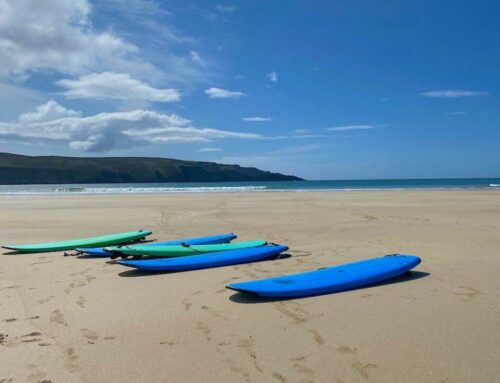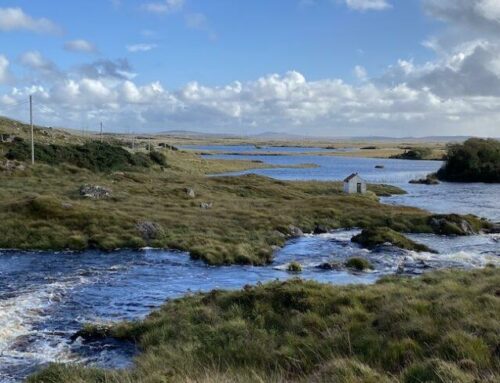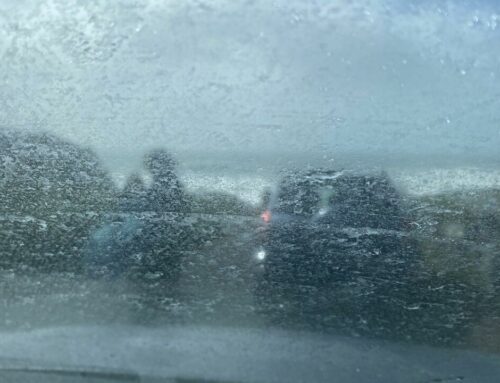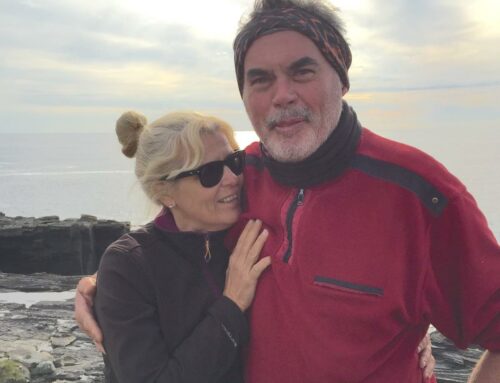 |
| Wanderer am Kassenautomat in Kerry |
Eintrittsgeld für Wanderer in Irland: Das neue Geschäftsmodell irischer Bauern, sich den Zugang zu Wegen und Bergen von Wanderern bezahlen zu lassen, stößt auf Widerstand und Empörung (unser Bericht und Kommentare dazu hier.) Jetzt meldet sich Albert Smith von “Keep Ireland Open” zu Wort. Die Organisation kämpft in Irland seit vielen Jahren für den freien Zugang zu Land und Bergen, für öffentliche Wegerechte und für das Recht, auf Privatland zu wandern”. In einem Beitrag für den Irland Blog rät Albert Smith, der Zweite Vorsitzender von Keep Ireland Open: “Wanderer, gebt den Farmern kein Geld!” In seiner Stellungnahme schreibt Albert (der ganze Beitrag in Englisch schließt sich unten an):
|
Albert Smith: Journalist, Wanderer, KIO-Aktivist
|
1. Der Plan, dass Farmer künftig Eintrittsgeld fürs Wandern auf ihrem Land erheben, gründet auf Gier und Kurzsichtigkeit.
2. Dass Farmer nun anfangen, Wanderern das bürgerliche Grundrecht auf freies Wandern in Rechnung zu stellen, verwundert nicht. Irische Regierungen drücken sich seit Jahrzehnten um Gesetze zum Schutz des öffentlichen Rechts auf freien Zugang.
3. Die Irischen Bauernverbände stehen einmütig auf dem Standpunkt: “Bleibt weg von unserem Land, wenn ihr oder die Regierung nicht dafür bezahlen wollt”. Das hat die Entwicklung des ländlichen Irland behindert und macht es schwer, Irland als Wanderziel richtig zu vermarkten – und dies, obwohl Irland die hervorragendsten und besten natürlichen Resourcen hat.
4. Der Unwille der irischen Politik, den freien Zugang gesetzlich zu regeln, beruht auf der großen Macht der Farmer-Lobby. Das Wahlsystem Irlands macht es für mächtige Interessensgruppen leicht, Wahlentscheidungen zu beeinflussen. Fianna Fail und Fine Gael, die beiden großen Parteien des Landes, die in den vergangenen 90 Jahren das Land regiert haben, sind beide sehr konservativ und nicht willens, Politik gegen die Farmer-Lobby zu machen – aus Angst, Wahlen zu verlieren. Daran konnten auch die Grünen bis heute nichts ändern.
5. Ironischerweise werden Irlands kurzsichtige Farmer gerade von den Steuerzahlern ausgehalten, die sie von ihrem Land vertreiben wollen. Im Jahr 2007 erhielten irische Bauern aberwitzige 96 Prozent ihres Einkommens aus irischen und europäischen Steuermitteln, im vergangenen Jahr waren es 85 Prozent; und doch besitzen die Farmer die Frechheit, eine moderne gesetzliche Regelung für den freien Zugang zu blockieren.
6. Die Regierung versteckt sich hinter einer kleinen Zahl von Rundwanderwegen, die in den vergangenen Jahren mit viel Getöse eröfffnet wurden. Diese aber lösen das allgemeine Zugangs-Problem zu Bauernland noch nicht einmal im Ansatz. Zudem hat die Regierung die Verträge nur für fünf Jahre abgeschlossen – und in fünf Jahren werden die Farmer mit offener Hand dastehen und noch mehr Geld als jetzt schon für den Unterhalt dieser Wanderwege fordern. Ein Scheitern ist absehbar.
7. Schottlands Regierung zeigt, wie eine Lösung auch für Irland aussehen kann: Dort ist das gesamte Land seit 2003 für verantwortungsbewusste Wanderer und Radler frei zugänglich, genauso die Flüsse und Seen. In Schottland ist dadurch ein Wander- und Outdoor-Boom entstanden, der viel Geld ins Land bringt. Die Hauptnutznießer dieser liberalen Gesetzgebung sind übrigens die schottischen Farmer.
8. Eine solche Gesetzgebung würde der irischen Regierung Mut und Weitblick abverlangen. Doch beides hat sie nicht. Deshalb müssen sich Irland-Besucher auch künftig mit gierigen Landbesitzern und unzeitgemäßen Gesetzesregelungen herumschlagen.
9. Unser Rat: Bezahlt kein Geld an Farmer, die Euch fürs Wandern abkassieren wollen. Wer bezahlt, ermutigt die Farmer, weiter in die falsche Richtung zu marschieren.”
“GREED AND SHORT-SIGHTEDNESS BEHIND THE ‘PAY TO WALK’ PLAN”
“THE news that Irish farmers have started trying to charge walkers for exercising that most basic civil liberty – taking a walk in the country – does not surprise those who have been trying to persuade a succession of mealy-mouthed Irish governments to change the country’s laws to protect public access.
Irish farming organisations take a uniquely mean-spirited attitude towards allowing responsible public access to land: “Stay away unless you or the government pays us” sums up their approach. This has skewed rural development and made it very difficult to market Ireland as a walking destination, despite the country’s abundance of beautiful mountains, lakes, shores and potential routes.
The farming organisations have got away with their dog-in-the-manger attitude because no government has been willing to confront them, despite th
e fact that farmers now make up only 3pc of the overall population and the cash-strapped country is missing out on a potential bonanza from outdoor enthusiasts who would rather visit the many other European countries where their right to be on land or water is protected by law.
The unwillingness of Irish politicians to introduce the kind of access legislation found in almost every other European country arises out of the excessive influence exercised by the farming organisations. Ireland has a finely-balanced multi-seat proportional representation electoral system where organised groups can easily swing many finely balanced rural constituencies. Both Fianna Fail and Fine Gael, the main two main governing parties over the past 90 years, are conservative by nature and reluctant to offend the farming organisations which can tilt a General Election for or against them. Even with the Greens as junior coalition partners in the current Fianna Fail-led government, it has proved impossible to get any movement on access legislation.
The irony is that short-sighted Irish farmers already receive the vast bulk of their income from the very taxpayers they seek to banish from the countryside. In 2007, farmers received an incredible 96pc of their income from the taxpayers of Europe and Ireland. Last year, it was 85pc. Yet they have the effrontery to block all attempts to discuss, let alone introduce, modern access legislation.
The present government has made a lot of noise about a relatively small number of looped walks opened up in recent years. But this is merely crumbs from the table as the looped walks scheme does not even approach, let alone deal with, the issue of access to the countryside generally. Sadly but predictably, it has only come about because farmers are being paid State cash for ‘maintenance’ – much of it notional. Worse, these looped walks are leased for just five years and can be closed at six months’ notice if the farmer wishes. At the end of the five years, the walks contract, in any case, lapses. This means all of the investment in opening routes and putting up signs could be wasted unless the government agrees to a further – and no doubt greatly increased – ransom to farmers.
The best long-term solution would, of course, be for the government to introduce the kind of free access legislation introduced in under the Land Reform Act 2003 in Scotland, where all land is open to responsible walkers and cyclists and all lakes and rivers are free to canoeists. The only exception is where land is under crops or in need of protection on environmental grounds. Scotland has enjoyed a boom in outdoor activities since the Act was introduced. Ironically, one of the main beneficiaries has been Scottish farmers, who have created a lucrative revenue stream by providing food and accommodation to the growing number of visitors.
However, such a law would require Irish politicians to show courage and vision. There does not seem to be any evidence of either quality in the Dail, the Irish parliament, at the moment. Until that changes, all visitors to Ireland must run the gauntlet of greedy landowners and an outmoded legal system loaded against all innocent and well-intentioned strollers.
In the meantime, don’t pay any farmer who tries to charge you for merely taking a walk. It only encourages them – in the wrong direction.”
Mehr zum Thema:
Die halbstaatliche Förder-Agentur South Kerry LEADER, die das “Pay for Walk”-System als Einkommensquelle für Farmer unterstützt, wird die Farmer-Initiativen in den kommenden Tagen in einem PRO-Beitrag verteidigen.
Keep Ireland Open: Die Organisation und ihre Ziele werden auf der Website www.keepirelandopen.org beschrieben.








Hinterlasse einen Kommentar